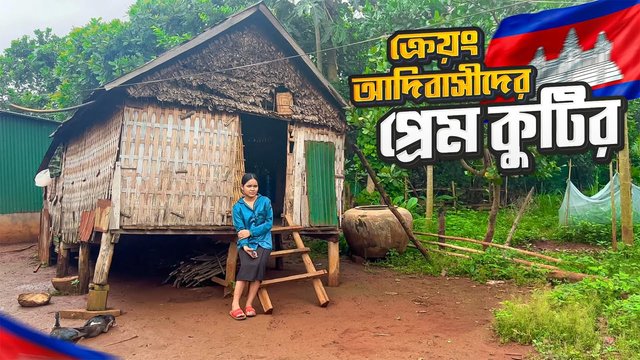The Unique Love Huts of the Kreung Tribe in Cambodia
Cambodia's rich tapestry of cultures is home to many fascinating traditions, one of which is the unique practice of the Kreung tribe regarding courtship and relationships. Known for their distinctive "love huts," this custom offers insight into the social dynamics and values of the Kreung people. In this article, we will explore the cultural significance of these huts, the rituals associated with them, and the perspectives of those involved.

Understanding the Love Huts
The love huts, or "girl's houses," are structures built by the families of young Kreung women when they reach puberty, usually around the ages of 13 to 15. These huts serve a dual purpose: they provide a private space for young women to meet potential suitors and allow them to explore romantic relationships in a culturally significant way.
Constructed primarily from bamboo and traditional materials, these huts are simple yet functional. The design is practical; they are meant to be temporary residences where the young women can invite boys over to spend time with them. The concept behind the love huts is not merely about physical relationships; it symbolizes a rite of passage and an important step in the journey towards marriage.
The Role of Parents in Arranging Relationships
In Kreung culture, parental involvement is crucial in the courtship process. Parents encourage their daughters to socialize with local boys, allowing them to explore their feelings and find a suitable partner. This practice contrasts sharply with many Western cultures, where such freedoms may be viewed differently.
Once a young woman has found a partner, the next steps often involve family discussions about marriage. This process can include various rituals, which may vary from family to family, but the overarching theme is that the union is not just between two individuals but is a joining of families.
Exploring the Cultural Significance
The love huts are more than just physical structures; they represent the Kreung people's values about love, family, and community. They allow young women to exercise autonomy in a controlled environment, a rare opportunity in many cultures. This practice also highlights the importance of relationships in Kreung society, where community bonds are considered foundational.
However, the love huts have also been subject to scrutiny. Critics argue that while the huts provide privacy, they can also lead to complications, such as unwanted pregnancies or societal pressures. The balance between tradition and modernity is an ongoing conversation within the Kreung community.
Modern Perspectives on Tradition
As Cambodia continues to modernize, the love hut tradition faces challenges. Younger generations may view these practices differently, influenced by urbanization and outside cultural norms. Some young women express a desire for more independence and less pressure to conform to traditional expectations.
Despite these changes, many Kreung people still see the love huts as a valuable part of their heritage. They serve as a bridge between generations, allowing the wisdom of the past to inform the futures of young women today.
Personal Experiences and Encounters
During visits to Kreung villages, travelers often have the opportunity to witness the love hut tradition firsthand. Many report feeling welcomed into the community, gaining insights into the lives of the Kreung people. These experiences often challenge preconceived notions about love and relationships, showcasing the beauty of cultural diversity.
Interactions with Kreung women, who share their stories and experiences, can be enlightening. They discuss the significance of the love huts, often expressing pride in their culture while also acknowledging the challenges that come with it.
Challenges Facing the Kreung Community
Despite the rich cultural heritage, the Kreung people face numerous challenges today. Economic pressures, environmental changes, and the encroachment of modernity threaten traditional practices, including the love huts. Younger Kreung individuals may find themselves caught between the desire to honor their traditions and the need to adapt to a rapidly changing world.
Moreover, issues such as education and access to healthcare can directly impact the lives of young women in these communities. As more Kreung people migrate to cities for better opportunities, the future of the love hut tradition remains uncertain.
Conclusion: A Tradition in Transition
The love huts of the Kreung tribe are a fascinating aspect of Cambodian culture, weaving together themes of love, tradition, and modernity. They represent a unique approach to courtship and relationships, providing young women with a space to explore their identities within the safety of their community.
As the Kreung people navigate the complexities of modern life, the love huts stand as a symbol of their resilience and adaptability. Whether they continue to thrive or evolve into something new, the love huts will always hold a special place in the hearts of those who cherish the rich cultural heritage of the Kreung tribe.
For those interested in experiencing this unique aspect of Cambodian culture, visiting Kreung villages offers a chance to witness the love hut tradition in action and engage with the community in meaningful ways. The experience can provide valuable insights into the complexities of love and relationships across different cultures.
Made with VideoToBlog